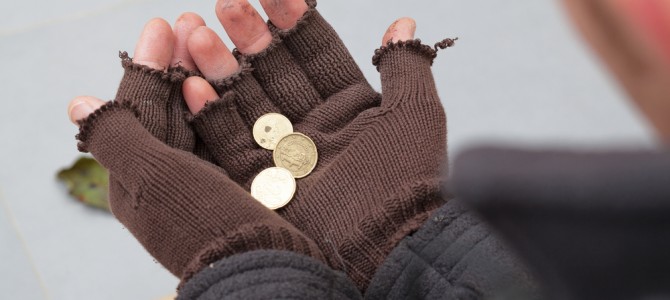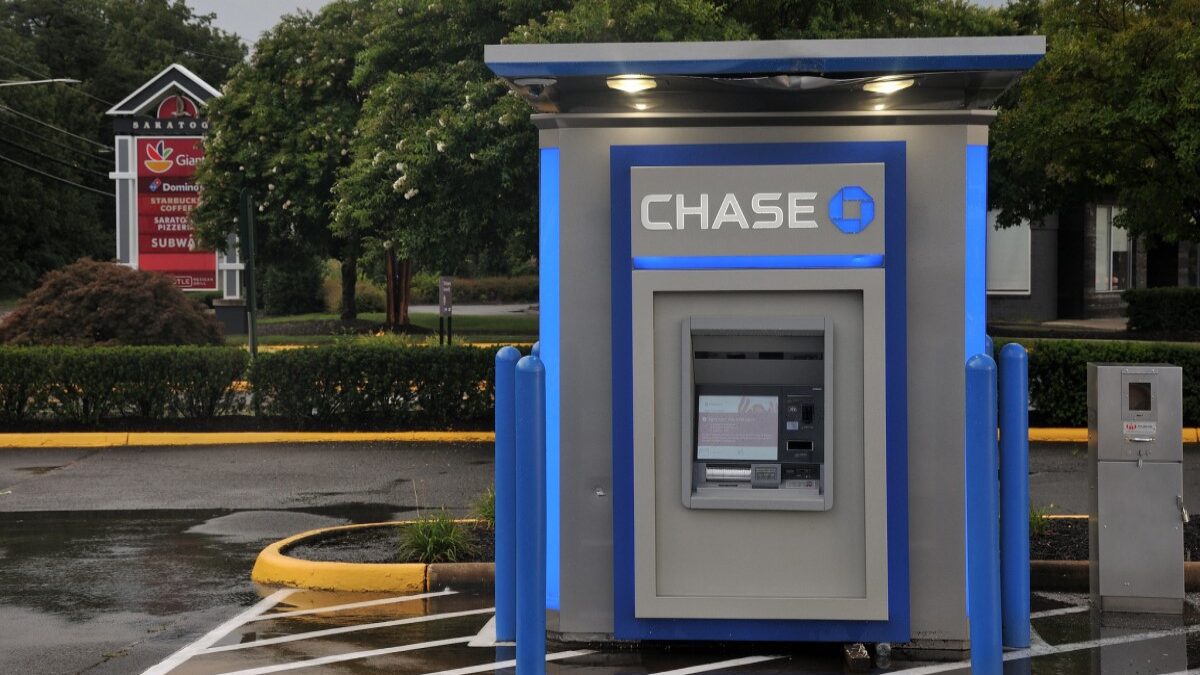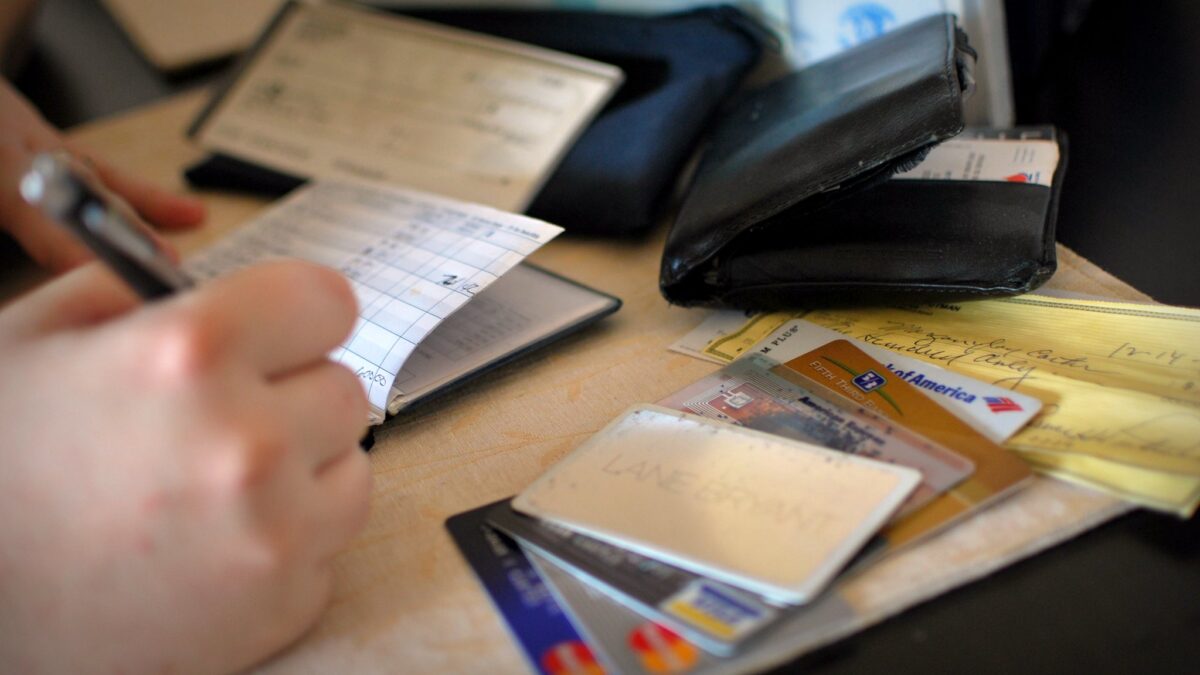
I work as a barista at a small shop near our house. It’s a warm and welcoming spot for suburbanites to buy artisan drinks delivered with excellence. Most people who come into the coffee shop have the means to justify their orders. Most people, but not all.
The people of my community generally have enough money to get by; some have lots, and some used to have lots, but no longer. My mom works at our local food pantry and says she sees people who, until recently, were living very well; older folk arrive in late-model luxury cars, wearing clean, but dated clothing, and are completely out of cash and food. I’ve also noticed the occasional soul standing on a corner near the coffee shop with a cardboard sign asking for help. It’s unfortunately too easy to dismiss them as impaired and unable to receive help.
Recently, a man with a cardboard sign tucked under his arm entered my shop. I had driven by him as I turned into our strip mall. He plucked a used paper coffee cup from a black plastic bag and asked if he could have a refill. I waved the cup away and asked him if he wouldn’t prefer a chocolate drink. He looked up at me, the hood of his parka falling back, and responded with a wide grin, “Yes!”
I happily prepared our guest a milk chocolate turtle mocha, handed it to him and added that I hoped his day went a little better. His eyes sparkled as he thanked me, but they also cut sharply through to my soul. “God bless you,” he added. After he left, we paid for his drink. Although I regretted not making him a hot sandwich, I felt pretty good in that tingling, helpful sort of way. We had helped someone who at first glance seemed not helpable, and he was very grateful. My co-worker and I gave each other verbal high fives at our generosity and smiled through the evening shift.
An Uncomfortable Visitor
Contrast that experience with another one several weeks earlier. I helped a man and felt terrible afterward. That night, at two minutes and 30 seconds before I was supposed to lock the door, an elderly man walked into the shop. I immediately noticed his 1960s-style fur hat, dress coat, plaid trousers, and whitened hair; he reminded me a bit of the way my grandfather had dressed when he was living.
He pleasantly asked if we were still open, but didn’t seem to want an answer. He then looked directly at me, paused, and asked if I would be so kind as to spot him a cup of hot coffee. I was stunned. I had never been asked that before. He had completely surprised me with his request and, with no practiced rebuttal, I replied, “Yes, of course.” In the extreme January cold and wind chill, we hadn’t seen anyone in the store for a while, and had thrown the last of the coffee out minutes before. I offered him an Americano instead. He readily accepted, then disappeared down the hall into the men’s restroom. My co-worker returned from the back room and I filled her in on our after-hours visitor. I made his drink and set it at the pick-up bar.
After several long minutes, and well into the precious few minutes we had to perform our closing duties, our guest emerged from the men’s restroom. He took the cup of coffee and headed to the condiment bar to customize his drink. He slowly added sweetener, tasted, added creamer, tasted, and so on. He diligently threw away the empty pink packets of sweetener and his wooden stir stick.
During this time, I kept reminding him that I needed to lock the door and finish closing the store. He then sat down at a table and begin to write on a piece of paper he had pulled out from his pocket. At this point, I countered, “Sir, I need you to leave, so that I can lock the doors.” I lamely added, “You wouldn’t want me to lose my job, would you?” His kind, but patronizing response, “Oh, I’m sure that won’t happen.” It was now 15 minutes past closing, and all sense of charm had evaporated.
“Sir, I need you to leave. We are closed. I will help you carry your things to the door,” I reiterated, trying to sound authoritative. I then picked up his prized cup of coffee and he tailed me to the front door. Outside, the bus he had arrived on was still waiting for him. I thanked him for stopping at our shop, wished him a good night, and quickly locked that darn door. I exclaimed to my co-worker, “God help that man!”
We shared a laugh and got to work closing the store as best we could with the little time we had left. Thankfully, our slow night had given us plenty of time to do some tasks early. We worked quickly and were pretty much on schedule for our close. As I completed each overdue task, my joy at helping an unexpected visitor diminished to discouragement and eventually to sadness.
After Coffee, What?
I had given a stranger a cup of coffee and then hustled him right out the door. In my vocation as a team member of a coffee shop, I had done the right thing. As a Christian and as a neighbor, I had done the right thing. Yet, doing the right thing didn’t make me feel good. Furthermore, what right did I have wanting to feel good about giving an old man a free cup of coffee? Any joy I could have possibly had was evaporated by the thought that a man in my community was riding around on a bus late at night, dressed in warm clothes and holding a sweet, creamy cup of coffee, but seemingly with no money to his name and nowhere else to go.
Was he homeless? I don’t know. Did he have a family? I don’t know. Could I or would I quit my job in pursuit of answers? Nope. I have my own family to feed and keep warm. So I drove home to take care of myself and my family.It was hard to fall asleep that night. I couldn’t think of a damn thing to make myself feel better. I didn’t want to feel better; I didn’t deserve it. I had tried to help someone, and it had turned uncomfortable. There was no way to spin that into something happy, quaint, or good. The one thing I knew was that I can and should do good works for my neighbor in the vocations to which God has called me, but I should not feel overly guilty if things don’t go as I expected. I fell asleep to a prayer that I would never be alone, conniving for coffee, riding a bus around town, and remembering when I had much, much more.









